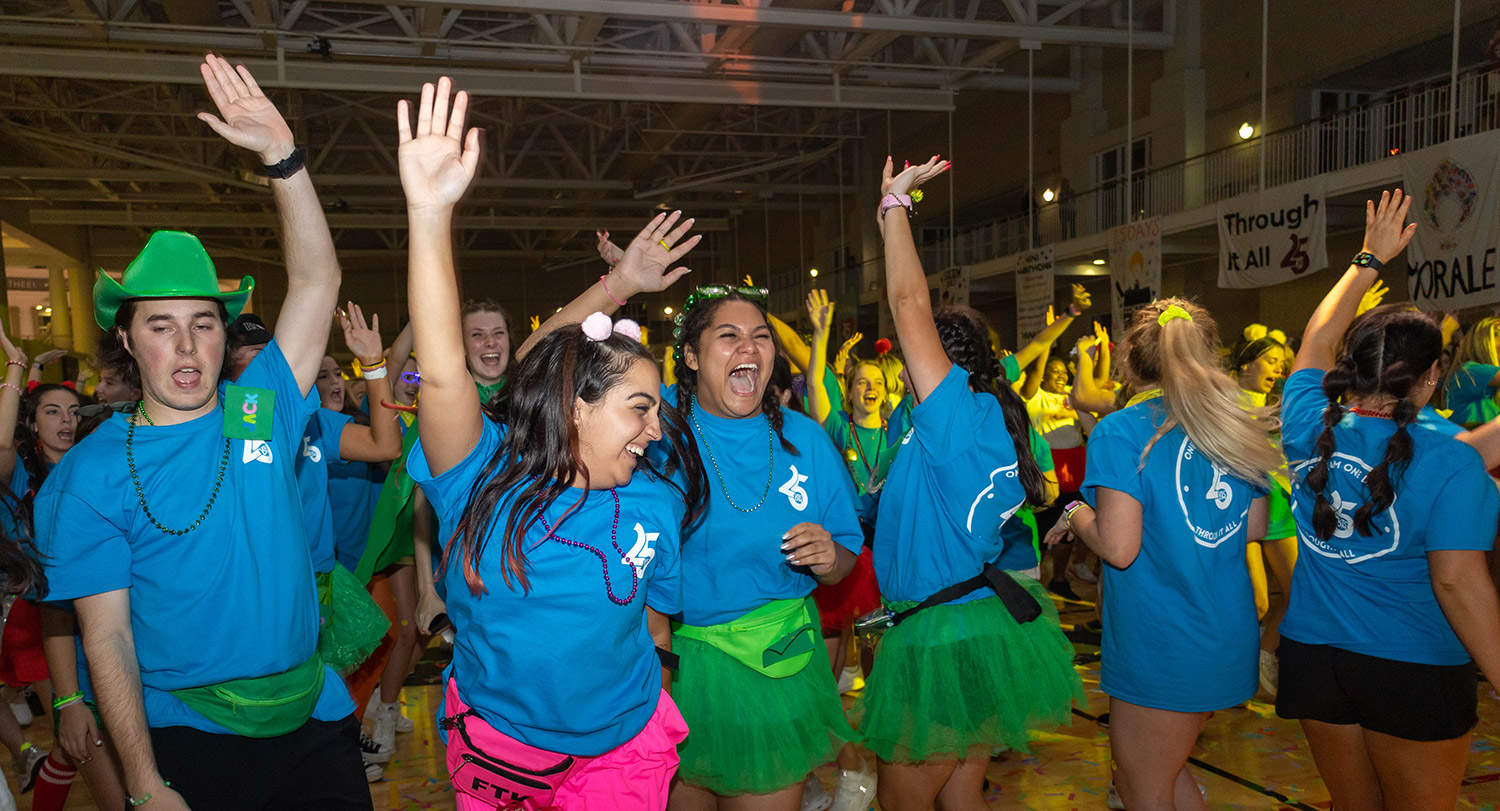
The bottom line is simple: The University of South Carolina Dance Marathon student organization is a group of volunteers who work year-round to raise money to support Prisma Health Children’s Hospital. Last year, the organization raised nearly $800,000. They hope to meet or exceed that goal at this year’s event on Feb. 24 at the Fitness and Wellness Center.
The truth, though, is even bigger — and deeper. Every student has a reason to keep going, to keep working hard for Dance Marathon when other priorities also demand time.
For Charlotte Boyd, a junior marine science major serving as this year’s director of registered student organizations, it’s personal.
“It's easy to get tired,” Boyd says. “This past week it was super busy and hectic and I couldn’t help thinking, ‘This is so much work.’ But then I really do have to remind myself that I was treated in a children's hospital that was impacted by a dance marathon. I am making a real difference.”
Boyd battled a severe illness while in high school and spent time in a Children’s Miracle Network hospital in her home state of Kentucky. The room she was in was sponsored by Dance Blue, the University of Kentucky’s Dance Marathon.
USC Dance Marathon is the university’s largest student-run philanthropic organization, raising more than $8 million since its inception 26 years ago, with all the money staying close to home. The Child Life Program at Prisma Health Children’s Hospital is funded by USCDM, and the USC Dance Marathon Playground offers a safe outdoor space for patients and siblings to play during their stay at the hospital. Dance Marathon leaders organize hospital tours each year so newly involved students can see the impact.
“We see these signs all over the hospital, and there was this one nurses’ station with a little plaque on it saying, ‘Funds raised for this by 2015 Dance Marathon.’ It’s so cool to see that we’re part of that same organization that’s making a real difference.”
Mary Rosivack, a junior exercise science major, serves on USCDM’s Family Relations Committee. She and her teammates work with the people they call “Miracle Families,” which include current and former patients at Prisma Health Children’s Hospital, along with their parents and other loved ones.
The Family Relations Committee organizes fun events for families throughout the year and arranges for them to join the entire USCDM team and supporters at the day-long Main Event dance party (set for Feb. 24 this year) that is the climax of each year’s fundraising mission.
“Dance Marathon is so much more than just an organization that raises money for the children,” says Rosivack. “You come for the cause, you stay for the people. We are there to support the kids. Getting to meet these kids and see what they've gone through and know that there are still millions of kids just like them who are still going through this as we speak. That’s what keeps me going.”
The organization has grown from its start with a very small group meeting in Russell House in 1998 to one that now has more than 100 volunteer staff members who work year-round. There are almost 100 more who serve on the Morale Team, spending months getting ready to lead the festivities at Main Event, where more than 1,000 more students join to spend a day dancing and fundraising.
“We see these signs all over the hospital, and there was this one nurses’ station with a little plaque on it saying, ‘Funds raised for this by 2015 Dance Marathon.’ It’s so cool to see that we’re part of that same organization that’s making a real difference.”
Main Event is the first experience with Dance Marathon for many students. That was the case with Rosivack, who signed up with friends from her sorority as a freshman. For her, as for many others through the years, that first experience everything.
“I ended up staying the entire time, fundraising the whole day,” Rosivack says. “I ended up raising over $600, which I did not expect. Then I wanted to do more. I heard about [the Morale Team] and joined that as a sophomore and just got absolutely committed to it. It has truly impacted my life and changed my life. I came into college wanting to be an athletic trainer. Now, I want to be a pediatric physical therapist working in hospitals with the children.”
The money the students raise is impressive, all the more so for an organization composed entirely of volunteers. Donations are welcome and can be made via the USCDM website. Even more important than the numbers, however, is the human support. These USC students send a clear message to children and families fighting the most difficult battles of their lives: You are not alone.